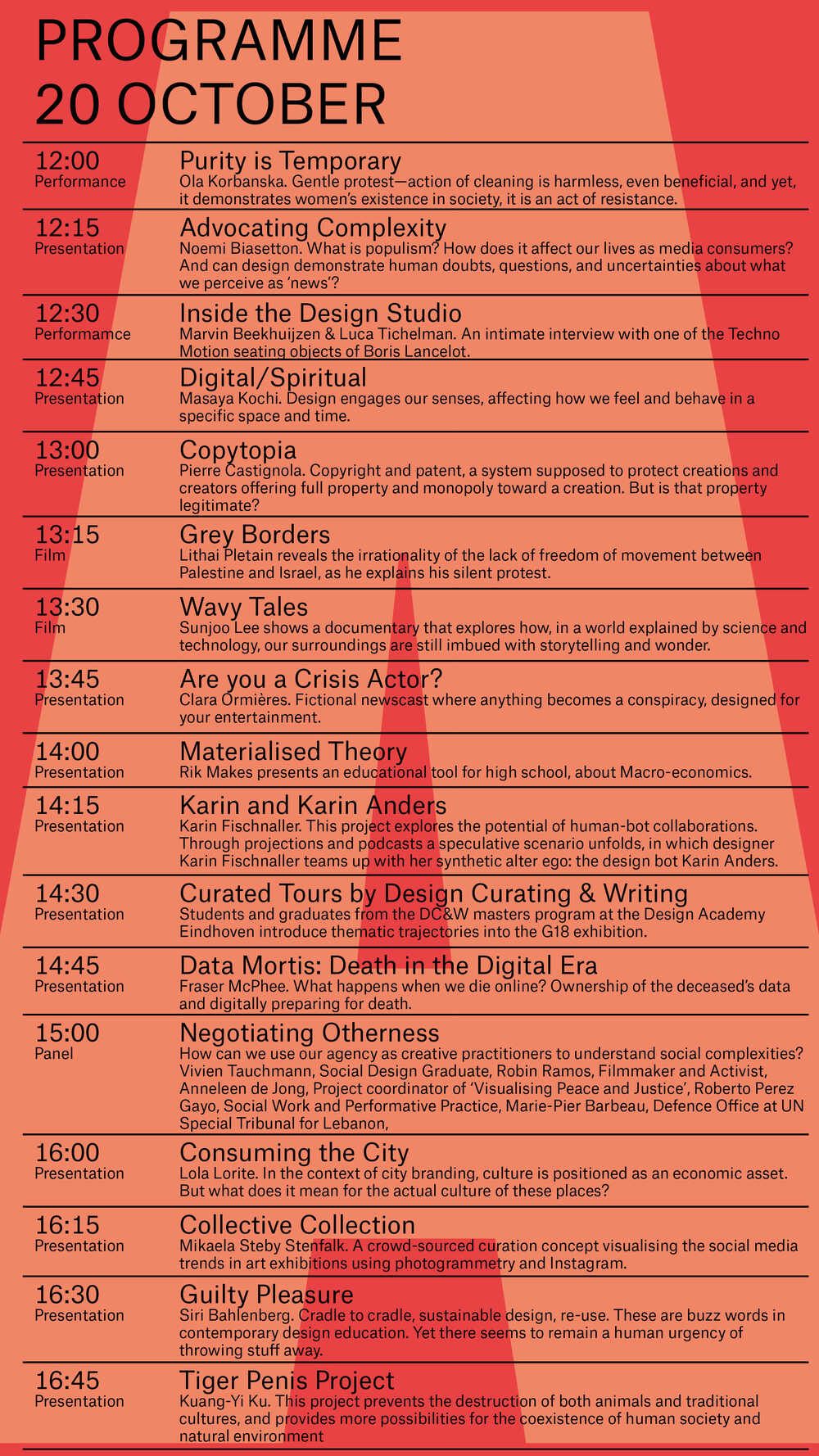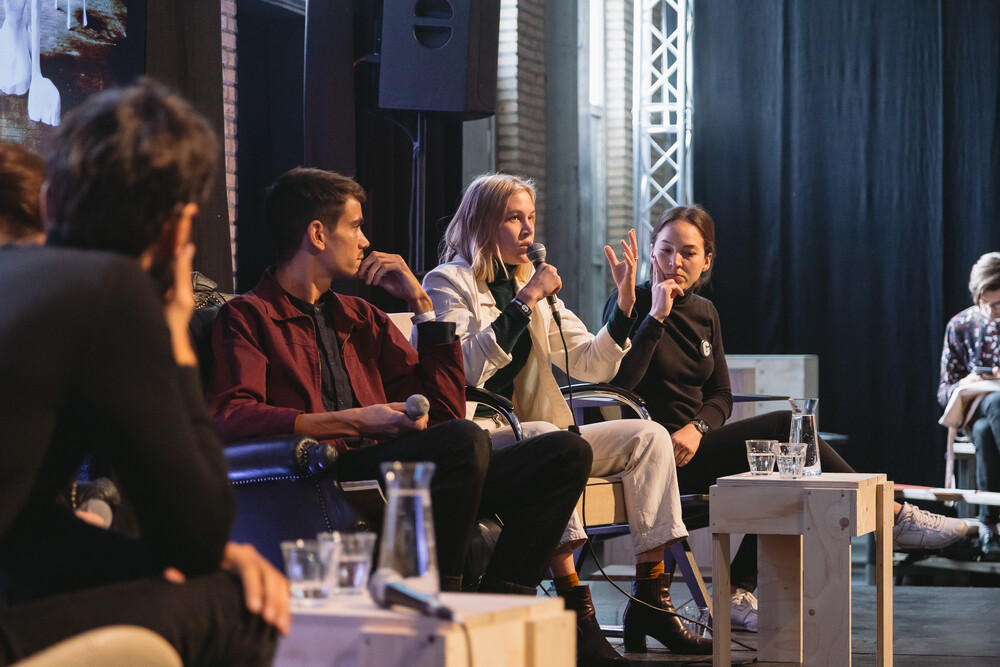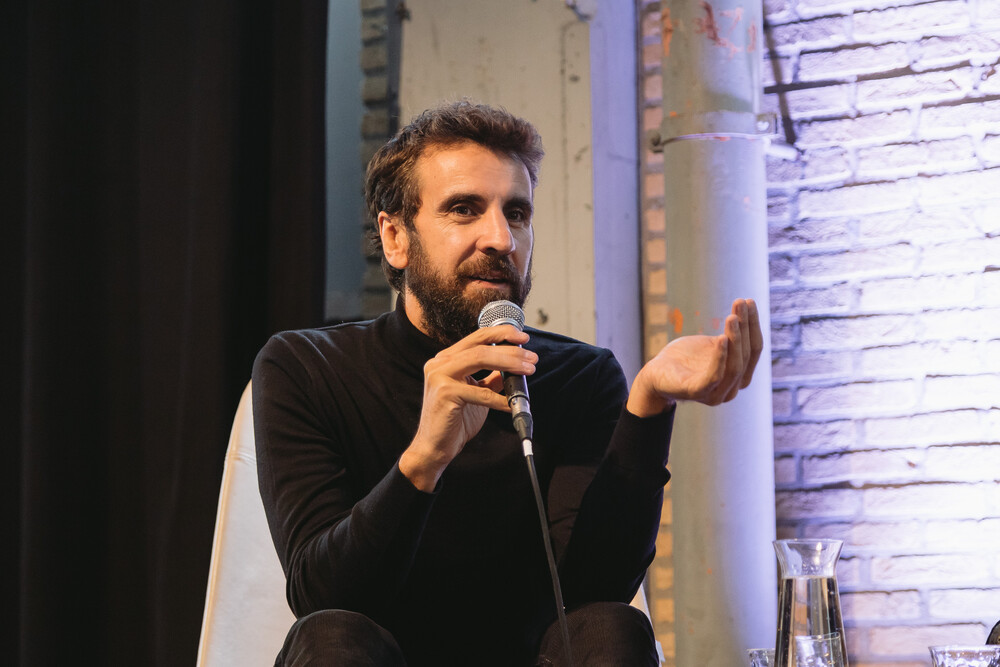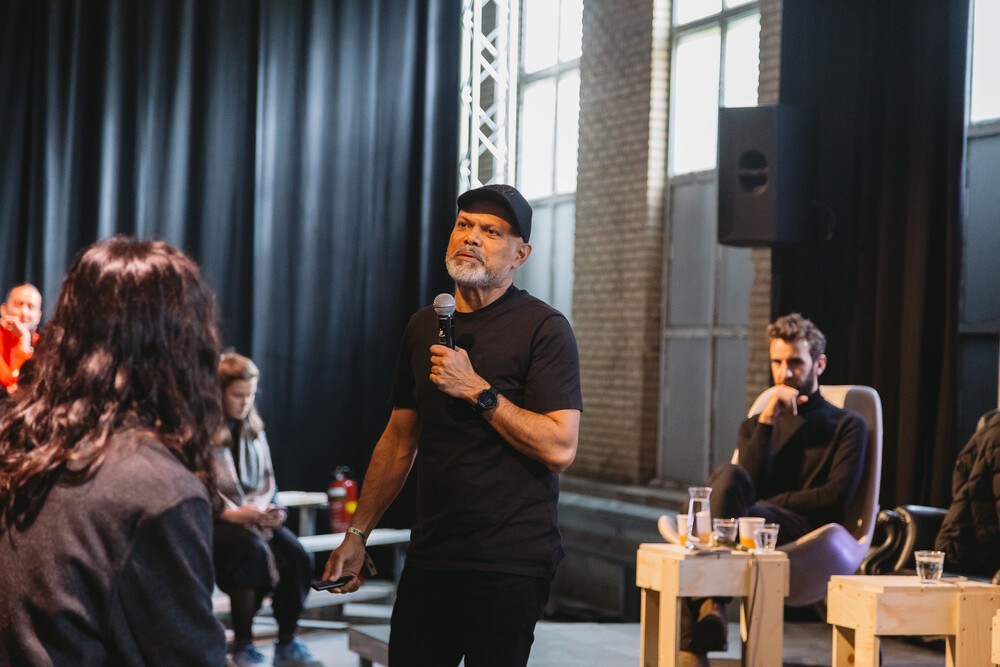The Arena 2018
SELECTED CONTENT
In a performative lecture on her project A Basic Instinct, Anna Aagaard Jensen explored how conventions of beauty, modesty and elegance continue to control women's behaviour in public. Her furniture invited women to imitate male body language: to sit in a self-confident, relaxed pose, with legs spread wide.
In the panel discussion Design and Human Rights, Ravi Naidoo, the driving force behind Design Indaba, shared the stage with the We Are Foundation, represented by Maxime Benvenuto and Bernhard Lenger and Joseph Grima, creative director of DAE. In the We Are Human Rights project (a collaboration with MU art space and UN department of Justice & Peace), the We Are Foundation connected seven designers with seven human rights activists. Together they investigate the role of design in alleviating situations where human rights are violated. The discussion that followed explored the catalyst role of design in social justice processes, implicit biases, power and collaborative projects.
The panel The Agency of the User - Our Political Relation to Technology asked how accessible the digital domain becomes for the citizen who no longer wishes simply to be a user of services. In a debate with Angela Plohman, executive vice president of Mozilla, Anastasia Kubrak, research & development at Het Nieuwe Instituut, and Mark van den Broek, strategic adviser for the Municipality of Eindhoven, DAE alumnus Martina Huynh discussed the political significance of digital technology.
A panel on Design and Populism sprouted from a project by Information Design graduate Noemi Biasetton, titled Advocating Complexity. Panellists included Andrew Stroehlein, European media director from the NGO Human Rights Watch, Clara Balaguer from Hardworking Goodlooking – who introduced the idea of changing the designer role from a modernist thinker to an active listener – graphic designer and author Ruben Pater and political researcher Kristof Jacobs. Pater urged designed to get off their ‘high horse’ and acknowledge that design can be patronising when it shouldn’t be, while Jacobs brought to attention the fundamental role of designers in the addictive nature of social media.
The Arena also offered audience members the opportunity to learn more about some of the graduation projects through embodied experiences. Vivien Tauchmann's performative project United Negotiation of Otherness taught the audience about the 'other' through active exercises that replicated daily activities of professions which most of us rarely do, while Alvin Arthur's project Body.processing performed choreographed body movements that enabled people to program and code in collaboration with others.



